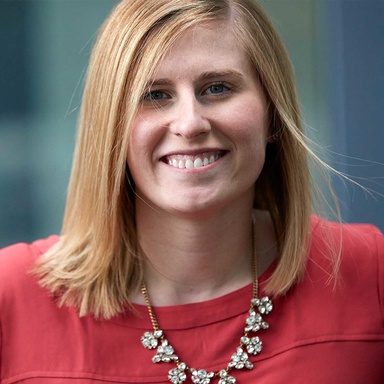
Among the wide range of career opportunities that come with earning your MBA, it’s no surprise that some of the top-paying MBA degree salaries are in executive leadership (think CEOs, CFOs, and CMOs). But what you may not realize is that mid-level leadership roles in finance, technology, and healthcare also pay big dividends.
The proof is in the payoff: What is the top MBA salary?
The breadth of MBA career paths and salaries is expansive – and opportunities abound. Based on our research, we’ve put together this shortlist of the top MBA specialization salaries in the USA1 to help narrow your focus:
Executive Leadership Specialization:
Chief Executive Officer (CEO) – $897,926
Chief Financial Officer (CFO) – $258,900
Healthcare Specialization:
Chief Medical Officer (CMO) – $240,977
Pharmaceutical Medical Director – $201,766
Medical & Health Services Manager – $104,830
Technology/IT Specialization:
Chief Technology Officer (CTO) – $141,200
IT Director – $136,901
Finance Specialization:
Financial Manager – $175,446
Director of Finance – $175,731
Which MBA specialization is best paid? Organizational and team leaders top the list in a variety of industries. Marketing Directors, Product Managers, Analysts, and Management Consultants can also earn upwards of $90k in today’s market. If you’re looking for the highest-paying MBA concentrations, you can’t go wrong with a focus in any of these lucrative fields.
Do MBA concentrations matter? Depends on your goals.
Choosing a concentration for your MBA gives employers a signal: You have both a well-rounded overview of how businesses operate plus a deep understanding of a specific subject area.
Concentrations allow you to zero in on a field that interests you while also completing the expected MBA curriculum.
According to The Princeton Review,2 some of the best MBA concentrations are strategy, corporate finance, operations, entrepreneurship, and management. However, GMAC3 reports in their 2023 Corporate Recruiters Survey that the top MBA specializations in demand by employers include communication, data analysis, and strategy—and their importance will continue to grow.
Due in part to the rise in demand for analysts, more than 6% of Fall 2022 Iowa MBA students added a Master’s in Business Analytics to their MBA program, and over 5% are pursuing a Business Analytics Certificate along with their MBA.

“One of the things that my Business Analytics Certificate really helped me with is being able to communicate with senior business leaders.”
Pick your passion: What area should I focus on for my MBA?
Your area of MBA concentration should reflect your interests as well as where you want your career to go. Do you aspire to lead teams and manage business strategy? Consider an executive leadership or strategic management concentration.
Does digging into consumer trends, buyer behaviors, and advertising metrics set your heart aflutter? Follow your instincts to a marketing or business analytics specialization.
With business strategy emerging as both a popular and relevant specialization in today’s job market, it’s a safe choice when choosing a concentration.
If you’re looking to add a more unique specialization, consider the emerging fields of business analytics and communication to stand out in a candidate pool.
There’s a nearly endless amount of opportunity for those who want to add focus to their MBA program. We’ve put together an MBA specialization list4 that shows the breadth of available options (we’ve linked to the certificates you can add on to your Iowa MBA):
- Business Analytics
- Business Communication
- Business Fundamentals
- Finance
- Innovation
- Leadership
- Marketing
- Healthcare Management
- Strategic Management
- Operations
- Entrepreneurship
- Management
- Consulting
- IT/Technology Management
- Sustainability
- Real Estate
- Social Impact
- International Business
- Change Management
- Supply Chain Management
- Accounting
- Non-Profit Management
- Executive Leadership
- Project Management
- Human Resources
- Public Administration
- Economics
- Hospitality
The list could (and does) go on and on. There’s an MBA concentration for nearly every industry—choosing yours could lead you to a satisfying career that matches your expertise with your passion.

"Iowa’s Marketing Certificate is something that backs up my MBA with a focus on a career path that I wanted to pursue."
And finally … does an MBA increase my salary?
Whether you decide to add a concentration to your MBA or not, there’s little doubt that earning an MBA degree will pay off in the long run. GMAC reports that the average starting MBA degree salary is $120k annually.
Acording to a recent Coursera Salary Guide5 MBA salaries get a boost of anywhere from 7% to 32%, depending on your industry. Not only that MBA graduates earn up to $50k more annually than those with a bachelor’s degree alone.
You may still be asking: Why should I get an MBA? Investing in yourself, your career growth, and a fulfilling and happy future are all solid reasons to go for it. Adding a concentration or certificate will only enhance your appeal to employers looking to fill specific roles.
When you’re ready to get started, take a look at how the Iowa MBA can help you reach your potential.
Related articles
Still have questions?
Q: What factors influence MBA salaries in different fields?
A: Various factors can impact MBA salaries, including:
- Industry demand: Sectors like technology and finance often pay higher salaries.
- Geographic location: Salaries can vary significantly based on the cost of living in different areas.
- Work experience: Professionals with more experience typically earn higher salaries.
- Company size: Larger, established companies often offer better compensation packages.
Q: How can I increase my earning potential with an MBA?
A: To boost your earning potential with an MBA, consider:
- Adding a concentration in high-demand areas, such as data analytics or finance. The Iowa MBA offers a wide range of concentrations to enhance your degree.
- Networking with industry professionals to uncover job opportunities.
- Gaining relevant experience through internships or part-time positions.
- Continuing education and certifications to enhance your skills.
Q: What MBA specializations are growing in demand?
A: Popular and growing MBA specializations include:
- Data Analytics: With the rise of big data, this field is highly sought after.
- Healthcare Management: An expanding industry that requires skilled managers.
- Information Technology: As technology evolves, so does the need for IT leaders.
- Sustainability Management: A growing focus on environmental responsibility.
Q: How does an MBA compare to other advanced degrees in terms of salary?
A: Generally, MBAs offer competitive salaries compared to other degrees, such as:
- Master's in Finance: Often leads to high-paying finance roles. Iowa’s part-time program makes it easier than ever to earn this advanced degree.
- Master's in Engineering: Can also lead to lucrative positions but varies by industry.
- JD (Law Degree): Legal professions can be very rewarding but require different skills. (Iowa offers a variety of dual degree options, including the MBA & JD Dual Degree.)
- Master's in Public Administration: Typically offers lower salaries than an MBA.
Q: What industries offer the highest salaries for MBA graduates?
A: MBA graduates can find the highest salaries in industries such as:
- Finance: Investment banking and private equity roles.
- Consulting: Management consulting firms pay top dollar for talent.
- Technology: Companies like Google and Amazon pay well for business roles.
- Healthcare: High-level management positions in healthcare organizations.
Q: What roles can I pursue with an MBA that offer high salaries?
A: High-paying roles for MBA graduates include:
- Investment Banker: Known for lucrative compensation structures.
- Management Consultant: Often offers high salaries and bonuses.
- Product Manager: Especially in tech, with salaries reflecting demand.
- Chief Financial Officer (CFO): Top executive roles yield high earnings.
Sources
- Salary sources:
- Sarah Wood. “6 Hot Jobs for MBA Graduates.” U.S. News & World Report, April 9, 2024.
- Martin Mascali. “13 of the Highest Paying Jobs for MBA Graduates to Pursue.” Monster.com.
- “Job Salaries By Industry .” Payscale.com.
- "Chief Executive Officer Salary in the United States.” Salary.com.
- “5 Most Popular MBA Concentrations.” The Princeton Review.
- Andrew Walker, et al. “Corporate Recruiters Survey – 2023 Summary Report.” Graduate Management Admissions Council, July 2023.
- Concentrations Data:
- "8 Common and In-Demand MBA Concentrations." Coursera, Aug 16, 2023.
- "MBA Concentrations." MBA Central.
- “MBA Degree Salary: 2025 Guide.” Coursera, January 6, 2025.

